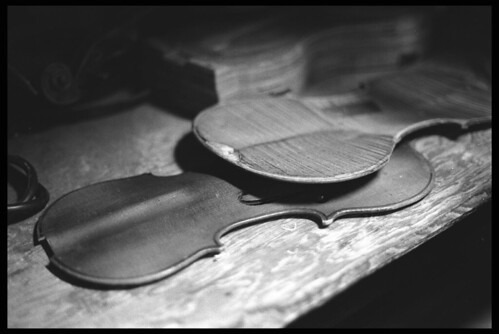 Several months ago, I was wondering where to focus my work and asked The Divine (no, not Bette M., the other One), what I should be doing now (other than raising my son and working on myself), you know, what I should be doing in the world, workwise. My music, my writing, seemed impractical, (how many actually mint decent gold coins at these)?
Several months ago, I was wondering where to focus my work and asked The Divine (no, not Bette M., the other One), what I should be doing now (other than raising my son and working on myself), you know, what I should be doing in the world, workwise. My music, my writing, seemed impractical, (how many actually mint decent gold coins at these)?I didn't expect a clear answer but I did get two. Later that day in a bookstore, a bit anxious, I primed the pump and drew out one card from The Kabbalah Deck. That's just not something I do, cards or tea leaves (too hokus-pokus for me), but, hey, I just plucked out a card. Samech. I remembered the story of how Samech asked Ha Shem to be the first letter in Torah but was told it needed to keep doing the job it had been doing, supporting the poor. No, another, less busy letter would be chosen.
Unbeliever, I, looked up my letter-card in the booklet which came with the deck. Here's the part that spoke to me...
In this context, the early Hasidim prized the worth of stories - sipurim (whose Hebrew word begins with 'Samech') - to nourish the soul and give us a greater appreciation for the holiness existing around us. Such leaders as Rabbi Nachman of Bratslav cherished storytelling as a valuable way to arouse people from their inner slumber.
I didn't think the booklet would actually encourage something like story writing.
The next day, I found myself walking with my son and telling him embellished funny stories. He turned to me, Dad, you should be a writer.
I'm writing this story down here because when I write about things like being answered by The Divine, I'm focusing on them. Then maybe I'll start to notice them a little better when they are happening around me the next time.
To me there is a fine line between being closed minded and reading too much into events and coincidences, being an unbeliever and looking too much for signs and messages. I guess what I am striving for is the same as in my cello playing - rather a focused practice than a vague overdoing. Everything we get better at is by ever more refined focus, by ever more quality attention than we thought even existed a while ago.
A few minutes of cello practice that is very attentive to specific aspects, like correctly varying the bowing lengths in a Bach phrase or carefully adjusting the bow closer to the bridge as a scale rises, will help me get better. An hour of dull practicing will actually make my playing worse.

When a violin maker, a luthier, makes an instrument, there is first the lumberjack who hacks down the tree with a crude ax. Then it is sliced at the less crude mill into straight planks. The best pieces are cut into possible violin slabs and aged. The luthier then roughly cuts the ones he chooses to fit a pattern. Then he carves them into roughly the correct thicknesses. Then with more refined tools, he shaves them into the shape of violin pieces. Then the tools get smaller and smaller, to nearly doll house sized. Finally, and there have been complicated testings and noticings at each step, a days work becomes when he sands a few grains exactly here and not there. Eventually he varnishes the wood become violin.
That is what I attempt in my communicating with The Divine, in my following intuition... a process that must be worked at with increasing attention and ever more refined noticing, but never overworked.
I quote The Violin Maker by John Marchese who in turn quotes ...the great sociologist, C. Wright Mills ...The craftsman's way of livelihood determines and infuses his entire mode of living, there is no split of work and play.
To develop a craftsman's mindset, it helps to actually practice a craft. Which craft does not matter, it could be cleaning one's house or cooking breakfasts just as well as making a violin. It's not the craft, but the way you do it that matters.
What is your craft?
I have to acknowledge again John Marchese, for it was from The Violin Maker that I paraphrased the process of making a violin.






